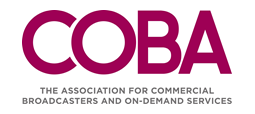COBA welcomes Prime Minister’s Brexit speech
COBA welcomes Prime Minister’s recognition of international broadcasters in her Mansion House speech on Friday 2 March.
“The Commercial Broadcasters Association (COBA) welcomes the importance that the Prime Minister gave in her Mansion House speech on Friday to broadcasting. We strongly support the Prime Minister’s recognition of the enriching role that UK-based broadcasters and programme makers have in European culture, and the importance for both the UK and the EU of maintaining a relationship that continues to enable the development and delivery of transfrontier broadcasting.
“COBA has consistently argued that broadcasters, like many other sectors, cannot wait until the cliff edge of March 2019 for clarity about the future relationship between the UK and the EU. It is now crucial for businesses and their employees in both the UK and the EU to have clarity on a transitional period as soon as possible.
“COBA looks forward to engaging with Government on next steps.”
For further information please contact: Adam Minns, COBA Executive Director, adam@coba.org.uk or 0203 327 4101
COBA is the industry body for multichannel broadcasters. COBA members operate a wide variety of channels, including news, factual, children’s, music, arts, entertainment, sports and comedy. Their content is available on free-to-air and pay-TV platforms, as well as on-demand.
Background notes
* The UK is Europe’s leading international hub for global media groups, home to more television channels than any other EU country. Around 1,400 channels are based here, representing more than a third of all EU broadcasters. More than half (761) of the channels licensed in the UK actually broadcast to overseas countries, not to the UK.
* International (non-domestic) channels invest more than £1 billion a year in the UK, accordign to a recent independent report for COBA. They employ thousands of people in the UK – more than 1 in 10 jobs in the UK television sector are related, wholly or in part, to international channels.
* The number of non-domestic channels based in the UK is growing significantly more quickly than domestic ones (17% a year for international channels vs 11% for UK channels).
* * Non-domestic television channels broadcast to EU markets in a way similar to passporting in the financial services sector: the UK regulator Ofcom grants a broadcasting licence which, under EU law, must be recognised by any other EU Member State. Were the UK to leave the EU, this recognition would no longer be granted – at least on a comparable basis – without securing access through an alternative arrangements.
* Broadcasters could not simply take a licence in another country without restructuring their European businesses in order to obtain a licence to broadcast from a remaining EU country.
ENDS
